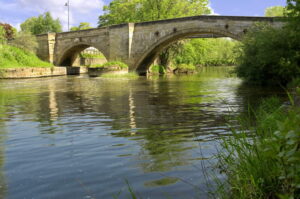|
Date |
Title |
|
| Autumn 2023 | North Norfolk Living magazine | Kevin is featured in this edition describing the places that matter to him most. |
| 1st February 2024 |
Norse Myths Tales of Odin, Thor and Loki Paperback edition, £12.99 Due for publication by Walker Books
|
Kevin Crossley-Holland, master storyteller and winner of the Carnegie Medal, brings the gods of the Vikings to life as never before in these extraordinary new retellings, lavishly illustrated by Jeffrey Alan Love. Meet Thor with his hammer, Odin with his one eye and Loki the trickster. From the creation of the nine worlds to the final battle of Ragnarok, this stunning collection brings you one of the greatest and most culturally significant stories in the world. Whether you’re a fan of Norse mythology or new to this world of ancient magic, gods and giants, this is an unforgettable collection retold and imagined by one of the literary greats of our time. “magnificent” The Times, Children’s Book of the Week. “a book to be treasured for generations” Daily Mail “A master storyteller” The Times Literary Supplement “spectacular and enjoyable, as well as an essential cultural bedrock” The Sunday Times “a wintry marvel of doom, hope, cruelty and imagination” The New Statesman “will delight both the newcomer and the Norse aficionado” The Guardian “a masterpiece” Jackie Morris, illustrator of The Lost Words |
| Spring 2024 |
King Alfred, and the Traveller’s Tale Due for publication by Walker Books |
Alfred never expected to become king, but all four of his elder brothers died. He inherited a kingdom that was desperately hard pressed by Danish Vikings, already in control of the North and Midlands and threatening to overrun the whole country. But so stubborn was his resistance and subtle his planning that in the end he was able to make a lasting treaty with their leader, Guthrum, and to oversee the division of England into Wessex and Danelaw. Eager for people to be able to read and hear great books in their own language, and well aware how very few priests knew Latin, Alfred learned Latin himself and began to translate them into English. One book, written by a Spanish monk called Orosius, told the history of the world from the creation up to the fall of the Roman Empire. But Orosius didn’t know much about northern Europe, and King Alfred wanted to add tales that he had heard himself from travellers. This book retells one of them. A trader called Wulfstan told the king how he had sailed east along the Baltic to Truso at the mouth of the Vistula, the river that now divides Poland and Estonia. I’ve taken the liberty of inventing the storm at the beginning of Wulfstan’s account, but otherwise I’ve closely followed his own vivid, wonderful account. King Alfred reigned from AD871 until AD900. He is the only king we have ever called Great.
|
| Autumn 2024 |
Kata and Tor Due for publication by Walker Books
|
One afternoon in August 1066, after nearly being drowned, a young Viking called Tor beaches his small boat on the Yorkshire coast. Then he and his two companions strike inland. 17-year-old Tor is the illegitimate son of a liaison between the king of Norway, Harald Hardrada, and an intrepid young woman, Solveig; and his mission, in common with a number of others, is to scout the way ahead for King Harald, now sailing south with 300 ships and 6000 men to claim the English throne. Tor has often heard stories from his mother, Solveig, about her close friendship with Edith, a slave-woman from Yorkshire, aboard a trading-boat almost thirty years before. And finding himself close to Edith’s native village of Riccall south of York, he resolves to search for her and heads off on his own. . . Harald Hardrada’s wife is Ellisif, daughter of King Yaroslav of Kiev, and after leaving her and their three daughters in safety in Orkney, he descends on the Northumbrian coast, and then sails past Ravenspurn up the Humber and Ouse. Tor meanwhile runs Edith to earth, but in finding her he completely loses his heart to Kata, her red-haired, 16-year-old daughter. Kata is attracted to him, too, but the villagers are suspicious and want to take Tor hostage. August and September 1066! These are two of the most dramatic and momentous months in English history – involving a tremendous three-sided struggle for England between Harold Godwinsson of England, Duke William of Normandy (William the Bastard) and Harald Hardrada. Turning his back on the threat from Normandy, King Harold marches up the spine of England towards York to face Hardrada – now assisted by the King of England’s own treacherous brother, Tostig. Loyalty and betrayal; the ‘cousinly’ yet often conflicting values of Anglo-Saxon and Viking; political turmoil in York; the rhythms of village and farming life, and time-honoured observance of seasonal rituals. . . then preliminary Viking raids and skirmishes (including the burning of Scarborough). . . During these brief end-of-summer days, Tor and Kata are drawn together by the threads of love, separated by the threads of conflict. From Edith they learn more about friendship and their shared history, and from the village priest about loyalty, belief and fate. After a thrilling scene in which Hardrada actually comes fact to face with the undefended Harold of England without realising who he is, the King of Norway raises his banner Land-Waster, given to him by Zoe, Empress of Byzantium, many years before. At Stamford Bridge war-trumpets bellow. Tor has no choice but to ready himself for battle. Kata prays. . .
|
|
|
||
|
|
|
|
